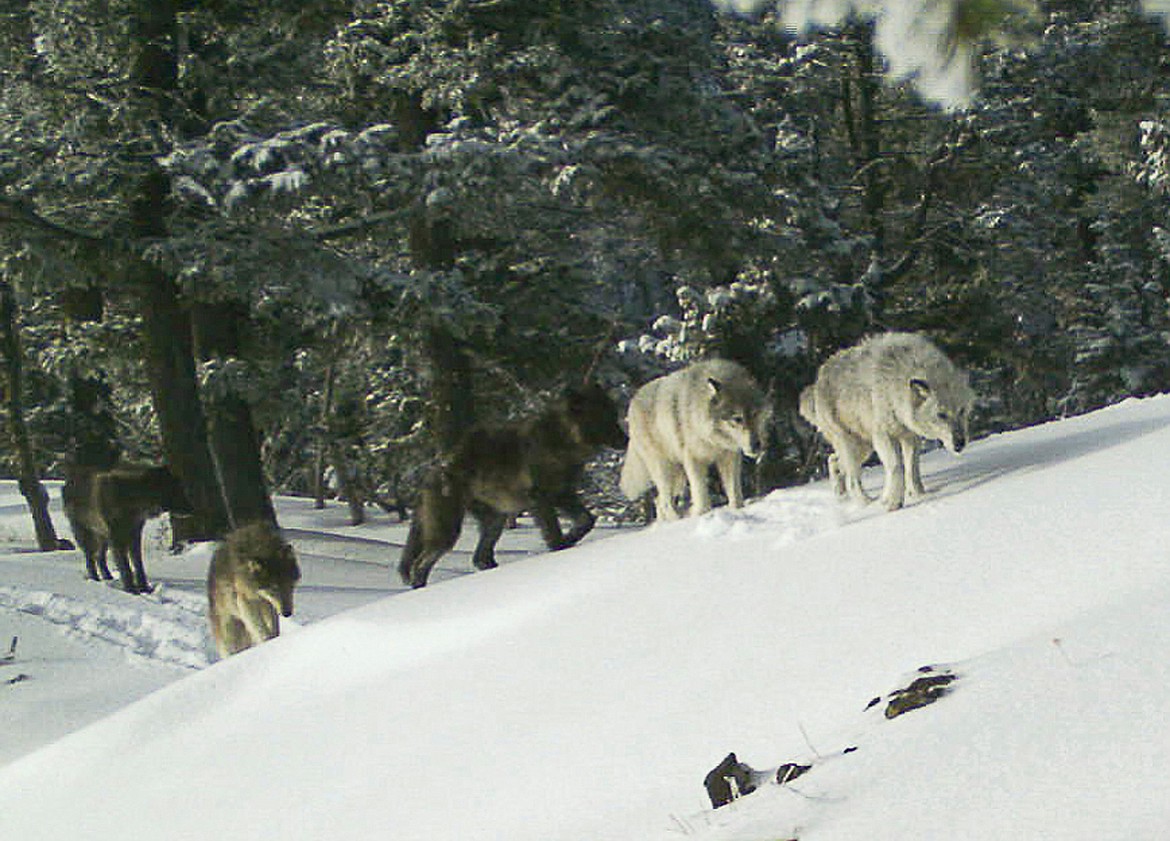Wolf kill bill in limbo
▶️ Listen to this article now.
A bill that might have allowed hunters to trap and kill wolves year-round without limits in most of Idaho might not make it out of committee because of legislative deadlines.
Supported by Sen. Van T. Burtenshaw, R-Terreton, but presented by former Republican Sen. Jeff Siddoway, House Bill 238 has been withdrawn since its initial print hearing by the House Resources and Conservation Committee Feb. 23.
The bill comes out of concern that Idaho has too many wolves, Siddoway said during the initial hearing. The goal would be to reduce the wolf population to 500 from Idaho Fish and Game's most recent tally of 1,556. To achieve this dramatic cut, wolves would be classified as predators, allowing anyone with a hunting license to shoot year-round without limitations.
Wolves and wolf-related legislation go back to 1995 when wolves were reintroduced to Idaho, and when wolves were protected under the Endangered Species Act until 2011. Now wolves are managed by Idaho Fish and Game through the Idaho Wolf Conservation and Management Plan.
As of Friday, HB 238 was still awaiting a hearing by the committee. When asked for comment, Idaho Fish and Game Panhandle Regional Supervisor Chip Corsi said the Fish and Game Commission — the department's governing board — had not taken a position on the bill.
However, that could possibly change, he said, if the bill advances. Rep. Jim Addis, R — Coeur d'Alene, said that's not a certainty.
"The transmittal date to get bills over to the Senate is, I believe, Monday," Addis, a member of the House Resources and Conservation Committee, told The Press. "I don't know for certain, but it appears there is work being done on the bill or negotiation."
Addis noted that it's the chairman of the committee's responsibility, in this case, Rep. Marc Gibbs, R — Grace, to hear a bill or not.
"I'm not the chairman of the committee, and I don't speak for the chairman of the committee," Addis said. "As of today, I can imagine it's being worked on to introduce. I do not have the agenda for next week, but if it doesn't have a committee hearing, it's not going to go anywhere."
Over the past several years, roughly one-third of Idaho's annual wolf harvest occurs in the Panhandle area, Corsi told The Press. On average, Corsi said, Panhandle's harvest hovers around 100 per season, but those numbers are increasing.
"Harvest both regionally and statewide was up last year — I believe 140 and 550, respectively," Corsi said.
Why the uptick up north? It's prime wolf real estate.
"Most suitable wolf habitat is occupied," Corsi said. "Panhandle sits amidst occupied wolf habitat in Washington, British Columbia, Montana, and north-central Idaho."
Corsi also noted that North Idaho is also home to the Foundation for Wildlife Management, a nonprofit sportsman group based out of Sandpoint that provides payments to hunters and trappers who harvest wolves. While it is a statewide organization, he pointed out that most of its members are based in the Panhandle.
Another reason? Long and increasing hunting and trapping season for wolves.
"Last year, the commission extended the length of the foothold trapping season earlier into the fall," Corsi said. "More wolves are harvested by trapping than hunting."
COVID-19 increasing outdoor activity could have played a hand in the growing harvest, he said, but since much of the pandemic occurred after the prime late 2019 to early 2020 season, that was likely not the case. Corsi also said wolf trappers are required to take an educational course, and it's more likely that a relatively small number of trappers are harvesting more wolves than in previous years.
If the legislation were to make it to Gov. Brad Little's desk, it would permit the Idaho Fish and Game Commission to review wolf management policies to ensure there were at least 500 wolves and 50 packs in the state at one time.
"It's been a strange session, the first three weeks. Not a whole lot happened, waiting for certain bills to happen, so we kind of lost the first part of our session, so everything is coming to a head right now," Addis said. "We'll have a better idea next week."

